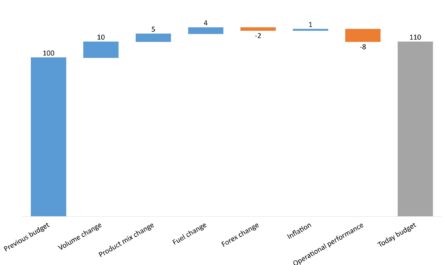In today’s fast-paced business world, having great connections with your suppliers is key to making it big. If you want your organization to run like a well-oiled machine and stay ahead of the competition, building strong relationships with your suppliers is the way to go.
In this blog post, we’re going to explore the top 10 best ways to keep those supplier relationships strong, encouraging teamwork, creativity, and lasting success. So, let’s dive in!
Before we go further into this topic, don’t forget to follow my LinkedIn account. You’ll get more helpful insights on supply chain management there.
Table of Contents
Clear Communication and Expectations
Good relationships thrive on clear communication, and this is super important when it comes to dealing with suppliers. When everyone knows what to expect, understands the details, and has realistic timelines, things run smoothly. Open communication lines are like a secret weapon – they help businesses dodge misunderstandings that could mess up the supply chain.
Being crystal clear about expectations lets suppliers align their game plan with what the business needs. This sets the stage for a partnership where everyone wins.
Staying in the loop with regular updates is just as crucial. Business landscapes change, and it’s only natural that requirements and processes will shift too. Giving suppliers the heads up about these changes makes sure everyone’s on the same page, reducing the chances of mix-ups or delays. Regular chit-chats build trust, boost teamwork, and create a solid base for rolling with the punches in the ever-changing world of business.
In a nutshell, good communication is like the glue that holds the supply chain together. It not only builds trust but also makes the whole operation more resilient and efficient, setting the stage for a long-lasting and successful business relationship.
Establish Mutually Beneficial Contracts
Contracts are like the blueprint of supplier relationships, laying out the rules and responsibilities for both sides. The key here is to create contracts that are not just fair and clear but also make both parties happy. Making sure everyone is on the same page by defining terms, conditions, and performance metrics is crucial. This clarity is like the glue that builds trust between the business and its suppliers, creating a vibe where everyone can work confidently.

But it’s not just about setting up rules; it’s about making sure everyone wins. Contracts should create a situation where suppliers are pumped to go above and beyond. When suppliers know their hard work will be rewarded, they’re more likely to give it their all, making the partnership a success.
And hey, contracts aren’t set in stone – they need a regular checkup. Keeping contracts up to date lets businesses roll with the punches of the ever-changing business world. It’s like being proactive, ready to adjust to market shifts, tech upgrades, or changes in business strategy. This way, contracts stay flexible and in tune with what’s happening, making sure supplier relationships last and stay strong.
Quality Assurance and Consistency
Keeping a consistent level of quality in your products or services isn’t just about making customers happy—it’s a must for your business to thrive. To make it happen, you’ve got to set up top-notch quality assurance processes that keep a close eye on your suppliers.
Think regular checkups and performance reviews—they’re your go-to tools for making sure your suppliers stick to the standards you’ve laid out. These assessments aren’t just about spotting areas that need a tune-up; they’re a chance to give feedback that helps both sides work together better.
When it comes to fixing any quality hiccups, teamwork is the name of the game. Instead of treating quality assurance like a bossy rulebook, businesses should have a chat with their suppliers. Understanding the nitty-gritty of the problems and coming up with solutions together is key. This teamwork isn’t just about fixing the here and now; it’s about putting in measures to stop issues from popping up in the future.
By teaming up to tackle the reasons behind quality blips, businesses and suppliers create a vibe of always getting better. Taking this proactive and team-oriented approach to quality assurance builds a strong bond between businesses and suppliers, making the supply chain tough and high-performing for the long haul.
You might also like:
- How to Minimize the Negative Impact of Inaccurate Sales Forecasts on Suppliers
- Unveiling the Hidden Costs: The Impact of Meaningless Actions on Waste in Supply Chain Management
Build Strategic Partnerships
Looking at suppliers as more than just business transactions and seeing them as strategic buddies can bring big wins for everyone involved. Instead of short-term deals, it’s all about building trust and teamwork for the long haul. When businesses treat suppliers like key players in their business world, there’s a ton of room for new ideas and efficiency.

This isn’t just about getting what’s needed right now—it’s about helping suppliers grow and succeed. It’s like a teamwork deal where one side’s success boosts the other’s.
Getting suppliers in on the big talks, like planning new products or improving things, is a game-changer. Their know-how and experience add serious value. This team approach doesn’t just make decisions better; it sparks innovation.
Suppliers, seen as strategic buddies, go from being just the folks delivering goods to being co-creators in the success story of the business. This tag-team effort makes both sides nimble, ready to roll with whatever the market throws their way.
Switching from a transactional to a strategic mindset is like putting money in the long-term success bank for the whole supply chain.
Risk Management and Contingency Planning
When it comes to the wild ride of business, you’ve got to be ready for the curveballs that supply chain issues can throw your way. Building a solid plan to handle these surprises is a game-changer for businesses looking to stay strong.
This means figuring out all the potential risks, from political drama and natural disasters to hiccups in the logistics or shaky suppliers. The next big move is crafting backup plans that can soften the blow of these risks.
By dealing with possible disruptions head-on, businesses can keep things running smoothly, avoid downtime, and keep customers happy.
Getting suppliers on board is a key part of this risk management dance. Teaming up to spot and tackle risks means everyone’s in it together to keep the supply chain tough.
This teamwork not only helps find hidden vulnerabilities but also cooks up plans that work for everyone. By teaming up with suppliers, businesses get to tap into their know-how, creating a support squad that boosts the overall flexibility of the supply chain.
The bottom line is that building resilience into the supply chain is an ongoing gig. It takes keeping an eye out, adapting on the fly, and working together to make sure businesses are ready for whatever twists and turns the modern business world throws their way.
Timely Payments and Incentives
Paying suppliers on time isn’t just about checking off a contract item; it’s like the glue that holds together a solid and win-win relationship. Meeting those payment deadlines isn’t just about keeping up appearances—it’s about building trust and being someone suppliers can rely on.

Suppliers need a steady cash flow to keep their gears turning and meet their own financial commitments. When businesses make timely payments, it’s a clear message that they’re committed and respectful partners.
Suppliers love that reliability, making them more likely to give priority to the business’s orders because they know they can count on getting paid consistently and on time. This kind of reliability builds a strong foundation for the relationship, creating a positive and team-oriented vibe.
To take things up a notch and supercharge that supplier relationship, businesses can think about rolling out incentive programs tied to outstanding performance. Beyond the basic contract stuff, these programs reward suppliers who go above and beyond or exceed expectations.
Think bonuses, longer contracts, or special treatment for future opportunities. It’s not just a pat on the back; it’s about creating a culture where suppliers are always aiming for the stars. The promise of extra rewards is a great motivator for suppliers to keep delivering top-notch products or services, adding to the overall success and competitiveness of the business’s supply chain.
So, timely payments and performance incentives create a give-and-take relationship that tightens the bond between businesses and their suppliers.
You might also like:
- Mastering Success: How Delegating Powers Up Your Supply Chain Strategy
- Winning in Supply Chain: Competence and Attitude Matter Most
Invest in Technology and Collaboration Tools
Bringing technology into the mix is a game-changer for businesses looking to amp up their connection and teamwork with suppliers.
When you dive into advanced supply chain management systems, team platforms, and tools for sharing data, it’s like putting the turbo boost on efficiency and clarity.
These tech-savvy solutions let everyone peek into the nitty-gritty of the supply chain in real-time—whether it’s checking inventory, tracking orders, keeping tabs on production schedules, or following shipments.

All this instant insight makes it way easier for the business and its suppliers to work together smoothly, slashing the chances of hiccups, mistakes, or crossed wires.
And it’s not just about seeing things as they happen; it’s also about making decisions lightning-fast. Armed with the latest info, businesses can make smart and quick choices, ready to tackle changes in the market or unexpected bumps in the road.
Less delays and fewer blunders mean a supply chain that’s flexible and fast on its feet.
Plus, going all-in on technology isn’t just about getting with the times; it’s a loud and clear signal to suppliers and stakeholders that the business is all about embracing cutting-edge solutions to boost efficiency and stay ahead in the game.
In a world where tech is a key player in business success, getting cozy with these tools toughens up the supply chain, making it more adaptable and ready for anything.
Continuous Improvement and Feedback Loops
Building a culture of always getting better with your suppliers is a savvy move that’s all about setting up solid feedback loops.
Regularly asking suppliers for their thoughts on things like processes, product quality, and how you’re working together creates an atmosphere of open communication and growth for everyone involved.
This ongoing conversation is where both sides can swap ideas, spot areas for improvement, and team up to tackle challenges.
Paying attention to and acting on helpful feedback isn’t just a show of commitment to a successful partnership; it’s a way to deal with issues head-on before they turn into big headaches.
But here’s the cool part: this commitment to always getting better isn’t just a boost for current supplier relationships; it’s a strong base for future collaborations too.
Suppliers are more likely to stick around for the long haul when they know their input is valued, and the business is actively working on making things better for both parties.

This shared dedication to always improving creates a loop of positive vibes, making each round of teamwork smoother and more efficient. As both sides grow and adapt together, the supplier relationship becomes super tough, responsive, and ready to handle whatever the ever-changing business world throws their way.
In a nutshell, building a culture of always improving is like putting money in the bank for the long-term success of supplier relationships, turning them into key assets for the business.
Corporate Social Responsibility (CSR) Integration
As businesses are getting more serious about being socially responsible, it’s not just about what happens inside the company but also how they deal with suppliers.
Now, businesses are expected to look beyond their own backyard and check out if their suppliers are playing fair when it comes to ethics, the environment, and social issues. Making sure suppliers are on board with ethical conduct, environmental friendliness, and social responsibility is a way to meet the bigger expectations society has for responsible business behavior.
This kind of watchful eye makes sure the whole supply chain isn’t just about making money but also about doing the right thing and taking care of the environment.
Teaming up with suppliers who share these values and are big on sustainable and socially responsible practices is like adding another layer to a company’s CSR game plan.
When businesses pick suppliers that are all about doing the right thing and taking care of the planet, it’s a loud and clear message that they’re serious about social and environmental values.
This teamwork doesn’t just stop at the company’s doorstep; it creates a ripple effect in the supply chain. It sets the stage for a supply chain that works together to be responsible, causing as little harm as possible to society and the environment while helping reach bigger sustainability goals.
And here’s the kicker: as consumers are increasingly into businesses that show they care about CSR, bringing these values into supplier relationships doesn’t just boost the reputation of the supply chain; it helps paint a positive picture of the whole company.
You might also like:
- 20 Factors to Consider When Deciding Whether to Make or Buy
- 15 Tips for Successful Supply Chain Beginners
Flexibility and Adaptability
In the fast-paced world of business, being able to roll with the punches and adapt on the fly is key for a successful supply chain. Businesses need to be on the ball, setting up a supply chain that’s ready to dance to the tune of market changes, shifts in what people want, and outside stuff like new rules or economic ups and downs.
This means really getting to know what each part of the supply chain can do and where it might hit a snag, especially when it comes to teaming up with suppliers.

Working hand-in-hand with suppliers gives businesses the lowdown on their production capabilities, how long it takes to get things done, and any roadblocks they might hit. It’s the starting point for a supply chain that’s not just fast but can also handle surprises like a pro.
Having a supply chain that can bend and flex is like having a secret weapon for both businesses and suppliers.
Being able to tweak production amounts, change up the goods on offer, or quickly switch to a different supplier when things change gives a serious edge in a market that’s always on the move.
This kind of adaptability is super important when unexpected curveballs come flying in, whether it’s natural disasters, global politics throwing a wrench in things, or people suddenly wanting something else.
The teamwork vibe between businesses and suppliers, built on honesty and good communication, becomes a powerhouse partnership that sets both sides up to face the twists and turns of the business world, ensuring success and growth for the long haul.
Conclusion
In the fast-paced world of modern business, having strong bonds with your suppliers isn’t just a good idea—it’s a must-do strategy.
The tips we’ve covered, from keeping the communication lines open to being socially responsible and flexible, are like the building blocks of a tough and team-oriented supply chain.
When everyone’s on the same page, and contracts are more like partnerships, it sets the stage for something way bigger than just transactions.
Processes like quality assurance, teaming up strategically, and planning for the unexpected add muscle to the supply chain, making it strong enough to handle whatever comes its way.
Paying on time and using top-notch technology make things run smoother, adding efficiency and reliability to the mix. And don’t forget about always looking for ways to get better and working hand-in-hand with suppliers; that’s the secret sauce for mutual growth.
Throwing in a bit of social responsibility not only keeps businesses in line with what society expects but also boosts their reputation.
Plus, being flexible and ready to jump on new opportunities is like having a superpower in the competitive business world.
The bottom line is, understanding that supplier relationships are true partnerships is the key to unlocking success and staying ahead of the game.
By putting these tips into action, businesses set themselves up for long-lasting and win-win alliances that keep them successful in a world that’s always changing.
I hope you find it helpful!
Please share this article with your colleagues so they can also benefit. For more insights on supply chain management, follow my LinkedIn account. You’re free to use all articles on this blog for any purpose, even for commercial use, without needing to give credit.
 by
by 

